Nomad Blog
Back to all posts
The 11 Not-So-Noticeable Property Costs Eating Your Profits
Published on: Dec 3, 2020
Owning a rental property is a great way to earn extra cash each month and even make a living:
“Ninety percent of all millionaires become so through owning real estate.” — Andrew Carnegie
"Landlords grow rich in their sleep." — John Stuart Mill
"Real estate investing, even on a very small scale, remains a tried and true means of building an individual’s cash flow and wealth." — Robert Kiyosaki
With quotes like these, you can see why anyone would want to be a landlord.
However, making a profit as a landlord isn't as straightforward as buying a house and listing it. No, it's a little more complicated than that.
Yes, your rental property will yield a monthly paycheck (once you find reliable tenants), but that paycheck isn't profit. Far from it. Before you can calculate your earnings, you're going to need to subtract all the obvious and not-so-noticeable costs of being a landlord.
Rental Income - Rental Property Costs = Rental Profit
First, almost 50% of landlords have a mortgage. Each monthly paycheck you get from your tenants will mainly go towards paying your mortgage for the property. However, there are other less apparent expenses, too.
In this article, we'll share with you all the hidden costs of owning a rental property. With these insights in mind, you'll be better able to price your property to make bigger profits month after month.
11 Hidden Costs of Owning a Rental Property
1. Vacancy
Vacancies can be some of the most stressful, expensive costs of owning a rental property. Your bills are still rolling in, but the monthly income from the property is not.
Each day that goes by with your rental property vacant, you have to eat the cost of the mortgage—which can be a hefty expense. Plus, you're probably spending additional budget to market your vacancy and try to find a tenant, further driving up the vacancy cost.
When budgeting for your rental property, take a look at your area's average vacancy rate. Follow these approaches from BiggerPockets to find your location's vacancy rate.
2. Delinquency
Sometimes, tenants don't pay on time. Other times, they fail to pay at all. During the COVID-19 outbreak, we saw states offering moratoriums on evictions and other landlords forced to provide tenants with relief options. These relief options included rent reductions, deferrals, abatements, and more—all of which cut into your cash flow and overall income.
There are difficult legal and ethical decisions to make right now. Still, even if you do decide to evict a tenant unable to make rent, you'll likely face hundreds or thousands of dollars in necessary legal fees.
Late fees can sometimes offset delinquency costs, but not always. Do your due diligence when screening tenants to mitigate delinquency risk.
3. Maintenance and Repairs
Your rental property is going to require ongoing maintenance to continue operating. Roofs need to be reshingled, furnaces replaced, appliances updated, carpets cleaned, and more. You can't anticipate every expense, but do your best to document, monitor, and plan for expected maintenance costs.
For example, if your furnace is 15 years old, you should be prepared to replace it soon. That replacement could be 5 or 10 years away, but it could also be next week.
Remember, it's cheaper to be proactive with your maintenance rather than repair and replace. Stay on top of your rental property needs, so you're not hit with as many surprises.
Anticipate your annual maintenance costs being around 1% of your property's value. So if your home is worth $300,000, expect to pay approximately $3,000 a year to maintain it (or about $250 per month).
4. Bad Tenants
Bad tenants can cost a fortune. They can lead to unexpected vacancies, expensive delinquencies, costly repairs, and even lawsuits.
Do your best to screen tenants with thorough background, credit, and reference checks. Unfortunately, many landlords skip some of these steps. It's your property—be selective with who you choose to stay there or choose a partner that will be selective. Often, a vacancy can be less expensive (and cause fewer headaches) than a bad tenant, so don't rush into anything just to make sure your property is occupied.
5. Property Management Fees
If you plan to have a company handle your rental property's nitty-gritty work, then be prepared to hand over anywhere from 8% to 12% of your rent (most commonly 10%). Plus, several other fees go into hiring a property management company:
Setup fees: One-time costs to set up your account with a new property management company. This may include an initial inspection and tenant prospecting materials. Expect to pay a couple of hundred dollars.
Leasing fee: Most rental property managers charge a fee when they lease a property. This fee usually covers the cost of advertising the property, screening tenants, doing showings, preparing the lease, and doing inspections.
Lease-renewal fee: Some property managers charge a fee to make adjustments to the lease and collect the tenant's signature. This could be a flat fee or a percentage.
Maintenance markups: Some property managers charge markups to the repairs and maintenance work they do.
6. HOA Fees
If your property is part of a homeowner's association (HOA), you'll have additional fees to pay each month. Check your HOA's fee history to learn how often prices usually rise and by typically how much. This will help you better anticipate future HOA expenses.
In 2019, average HOA fees were around $330, but these fees could be as low as $100 or as high as a few thousand depending on your location.
7. Utilities
You'll need to pay for utilities like gas, electric, water, sewer, trash, exterior maintenance, and more. Some landlords require the tenant to pay for things like electricity, gas, and water, and others include the cost in the price of rent.
Regardless of how you go about it, make sure you remember to factor in these costs when estimating your expenses.
Utility costs can widely fluctuate depending on your home's size, the number of tenants you have, location, and more—but you could be paying up to $400 each month.
8. Taxes
You'll have to pay property taxes and tax on your rental income. Fortunately, if you live in Colorado, you'll enjoy some of the lowest property taxes in the country. However, property taxes usually still add up to thousands of dollars each year, so make sure you include it in your estimated expenses.
The national average for property taxes is 1.08%, meaning if you owned a $300,000 home, you could expect to pay around $3,240 annually.
9. Insurance
Your property will need insurance, and insurance for rental homes usually costs more. Landlord insurance can cost 15% to 20% more than homeowners' insurance, so budget accordingly. Plus, depending on your location, you'll want to consider special insurance for disasters like earthquakes, floods, and more.
Average rental property insurance prices range from $375-$1,250.
10. Legal Advice
You'll want a lawyer's help with all your contracts. Plus, you may need legal advice when dealing with any tenant lawsuits or evictions. Evictions require legal and court filing fees, so you'll need to keep these expenses in mind if you try to fix delinquency problems.
Legal fees could be anywhere from $225-$300 an hour for landlord-tenant issues. And if you don’t use a lawyer-vetted lease, you may add risk of even more costs if you’re not protected.
11. Time
Time is your most valuable resource, and if you're self-managing your rental property, you're going to be investing a massive amount of it:
Pricing strategy
Marketing (picture-taking, advertising, listings, pricing, etc.)
Screening tenants
Home showings
Leasing and renewals
Rent collection
Maintenance and repairs
Tenant communications
Commuting to and from the rental
And so much more
What's the value of your time? Let's say it's $25/hr, and let's estimate you spend 10-20 hours each month managing your rental property (that number will fluctuate depending on vacancies, high-maintenance tenants, etc.). If that's the case, you'll be spending $250-$500 worth of time each month.
Remove Several Hidden Expenses With Nomad
Owning a rental property will always require expected and unexpected expenses, but you can claim convenience while kicking many costs to the curb with Nomad.
With Nomad, you get guaranteed rent. Yes, that's right—guaranteed.
Pricing and marketing are our speciality and Nomad can often get better and faster results than an individual landlord. Further, we thoroughly screen residents and use a fair and thorough lease to protect you and your residents.
Our property protection plan protects your property against damages and costs if they exceed the residents’ security deposit and landlord and/or tenant insurance policies. On top of all this, our fees are often tax deductible (talk to your tax professional!).
Take the stress out of your finances and get predictable monthly income with more-predictable expenses, also. Request your guaranteed rent estimate now.

Reach New Heights
Get a no-obligation estimate for Guaranteed Rent, and see how Nomad can help you earn more with less stress


Unlocking economic opportunity for everyone.
Already a customer with us? Login to your portal

© 2025 Nomad Labs, Inc. All rights reserved.
Nomad Brokerage LLC
Nomad Brokerage California Inc
California DRE # 02230490
Texas Real Estate Commission Consumer Protection NoticeTexas Real Estate Commission Information about Brokerage Services



